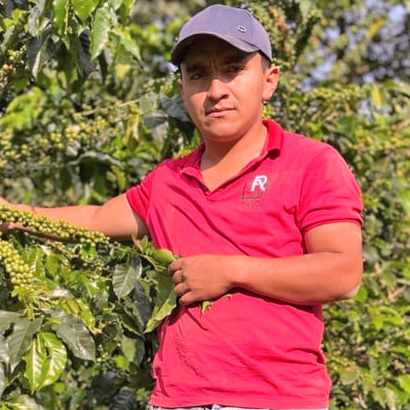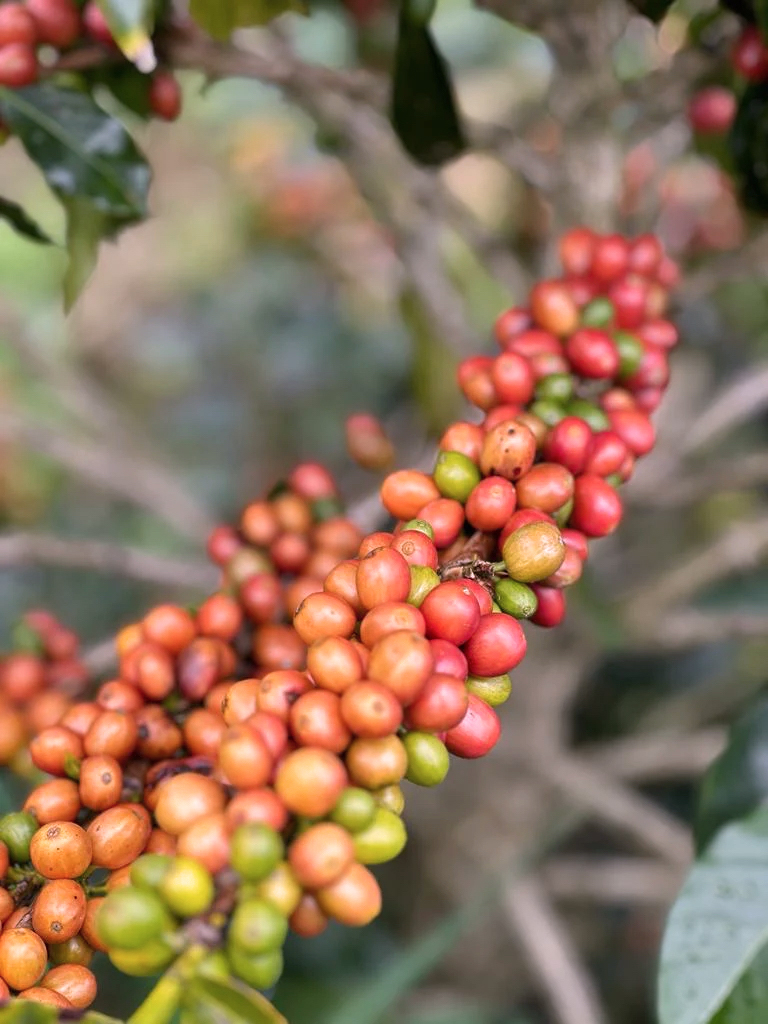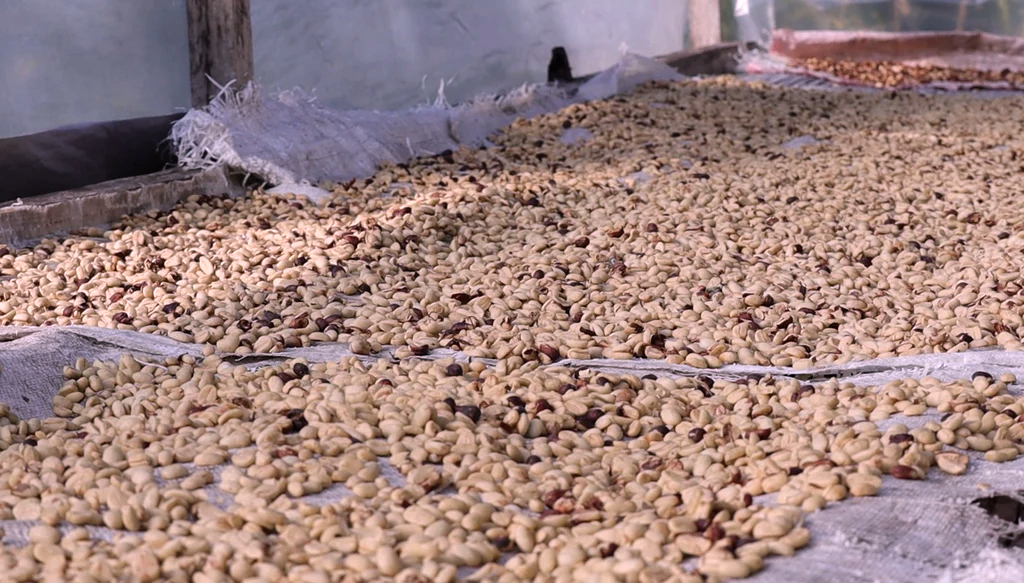






Colombia
Cup Notes: Pineapple, Passion Fruit, Cherry, Chocolate
A spectacular Pink Bourbon, this rare single-variety lot bursts with juicy tropical notes. It might evoke the character of an anaerobic process, yet it’s simply the brilliance of a classic washed Pink Bourbon expressing its full potential.
Suggested for espresso and filter
when we roast
We freshly roast to order all coffees on Monday, Wednesday and Friday (excluding national holidays), and ship the same day! Cut-off time is 11:59pm (UTC+1) of the day before the roast day. *We only ship whole beans*
El Delgado Farm is a family-run project established twenty years ago in the Palmar de Criollo area, one of the most important coffee-growing regions in Pitalito, Huila.
Today, it is led by the second generation of the González family, who are passionately committed to innovation, sustainability, and the production of top-quality coffee. Their dedication goes beyond their own farm, as they actively promote environmentally responsible practices among neighbouring producers.
Johanny, the current head of the farm, inherited it from his father and developed a deep connection with coffee from a young age, growing up among the coffee trees and learning every secret of the trade.

PINK BOURBON
Cultivated from a hybrid of Red and Yellow Bourbon, Pink Bourbon is said to have been first discovered in Pitalito, Huila. Pink and Orange Bourbons are notoriously difficult to produce with consistency. The recessive genes responsible for these unique cherry colours are easily overridden by dominant red and yellow genes present in pollen, which makes stable propagation a challenge. However, when cultivated in carefully isolated and controlled plots, Pink Bourbon can thrive, preserving its distinct colour and character, though such lots remain rare.
Pink Bourbon is also noted for its high glucose content, which is thought to contribute to its delicate, soft, and complex flavour profile. It often displays elevated sweetness, floral aromatics, and layered acidity with notes reminiscent of tropical fruits, berries, and citrus. Grown typically at higher altitudes, the variety is sensitive to climate and disease, requiring skilful management from producers. Its clean and expressive nature makes it particularly well-suited to washed processing, where the clarity and purity of the cup can truly shine.

Washed coffees showcase solely the bean.
They let you taste what's on the inside, not the outside. Washed coffees rely almost entirely on the bean having absorbed enough natural sugars and nutrients during its growing cycle. This means that varietal, soil, weather, ripeness, fermentation, washing, and drying are all absolutely critical.
Washed coffees reflect both the science of growing the perfect coffee bean and the fact that farmers play an integral role in shaping its flavour. With washed coffees, it becomes clear that the country of origin and environmental conditions play a vital role in defining the final taste.
During wet processing, the pulp (the exocarp and part of the mesocarp) is removed mechanically. The remaining layer of mesocarp, called mucilage, clings to the parchment and must also be removed before drying. Because mucilage is insoluble in water and adheres strongly to the parchment, it cannot be removed by simple rinsing. Instead, it is removed either through natural fermentation or by mechanical scrubbing in machines known as mucilage removers.
Fermentation can be carried out by piling the coffee outdoors or by immersing it in water and allowing natural microbial activity to do the work. Once the sugars are broken down and removed, the beans may undergo a secondary washing to eliminate any remaining debris, or they can be transferred directly to drying beds.
